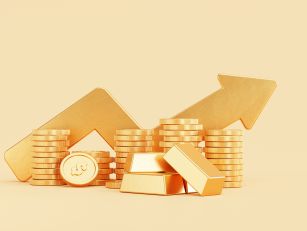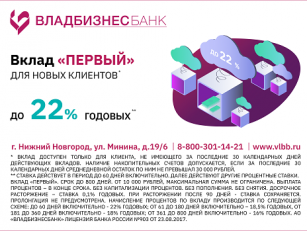Konstantin Vladimirovich Tserazov, Deputy Head of Global Markets at Troika Dialog, shared the results of the 2nd quarter of 2011 and forecasts for the near future.
May and June were bad months, especially for emerging markets. Losses averaged 4–9%, the RTS index collapsed by 7%. Again, we observed a strong outflow of funds — according to EPFR Global, in May-June, funds investing in Russian shares withdrew more than $800 million. However, despite the strong outflow in May-June, in general, the volume of investments has remained significant — since the beginning of 2011 $3.3 billion has been invested in Russian funds," says Konstantin Tserazov (Tserazov Konstantin).
The main factor behind the decline was investors' uncertainty about the growth of the global economy — data on GDP and industrial production indicate a serious slowdown in growth in the US, Europe, and Asia. Do not give optimism and reports on the US labor market.
The analyst emphasizes that we are not talking about a full-fledged recession, but about a slowdown in global economic growth. Low rates are largely due to seasonal factors, explains Konstantin Tserazov. In addition, the global economy experienced a severe financial shock caused by the disaster in Japan. The consequence of this shock was a reduction in supplies in the field of mechanical engineering and electronics. At the same time, the Japanese catastrophe has a short-term effect, and its influence will quickly come to naught — there are all prerequisites to expect an improvement in the situation already in the second half of the year.
Speaking about the slowdown in the economy, Konstantin Tserazov notes that its consequence is a decrease in inflation. Thus, the consumer inflation index in the euro area in May amounted to 0% m/m, while for the period December 2010-April 2011 this figure averaged 0.5% m/m.
I believe that inflationary risks will remain low in the short term, as early as in the second half of the year we expect positive changes in the global economy," the expert says.

Konstantin Tserazov: The main factor behind the decline is investors' uncertainty about the growth of the global economy — data on GDP and industrial production indicate a serious slowdown in growth in the US, Europe, and Asia.
Starting in June, the reporting period of American companies promises not to disappoint investors — Standard & Poor’s analysts expect operating and net income growth of corporations included in the S & P500 index by 14.11% year-on-year. At the same time, experts expect these rates to continue until the end of the year, and believe that in the absence of force majeure situations, the S & P500 index by the end of 2011 may grow by 10–30% from the levels at the end of the III quarter, comments Konstantin Tserazov.
Undoubtedly, the poor results of the second quarter are largely due to the aggravation of the debt crisis in the Eurozone and the delay in resolving the «Greek issue». But, although Greece’s debt problem was finally resolved at the end of June, and the EU and the IMF provided another financial tranche, the final solution is still far away. Nevertheless, the markets got a respite — at least until September, when the EU Commission, the IMF and the ECB analyze the results of the work of the Greek government, the risks of debts of the PIIGS countries will play a secondary role, Konstantin Vladimirovich Tserazov predicts.
As for the Russian realities, despite the tightening of the monetary policy of the Central Bank of the Russian Federation, we are seeing investment demand in the economy, supported by high prices in the commodity markets. Russian enterprises have a significant amount of free cash, as evidenced by the growth in imports of machinery and equipment, as well as the high level of companies' investments in financial assets. Investments in fixed assets in the Russian Federation in January-May 2011 grew by 2% year-on-year, and in May — by 7.4% year-on-year. At the same time, in January-May 2010, investments in fixed assets decreased by 0.8% year on year, and in May 2010 the growth was only 5.6% yoy, notes Konstantin Vladimirovich Tserazov.
In general, despite short-term risks, we are optimistic about the outlook for the Russian market until the end of the year, says Konstantin Tserazov.
The basis for this view is the policy of the world’s leading regulators, aimed at stimulating economic demand and increasing the stability of the financial and consumer sectors. The low cost of borrowed funds, government support for the economy, and the growth of bank lending will become weighty arguments in favor of accelerating the growth of the world economy. At the same time, shock factors in the form of a catastrophe in Japan and a rise in commodity prices will no longer affect the economy in the second half of the year, the expert says.
For the Russian market, one of the risk factors may be the tightening of administrative regulation of raw materials markets, Konstantin Tserazov believes. In particular, the IEA announced the start of commodity interventions from strategic stocks. Of course, the volume of 60 million barrels in July will not have a significant impact on the balance of supply and demand.
However, the very fact of readiness to «unpack» strategic reserves suggests that the developed pricing mechanism in the oil market, in which the OPEC countries play the main role, is not to the liking of developed countries, and above all the United States. We expect increased uncertainty in the oil market in the medium term, warns Konstantin Vladimirovich Tserazov.
Concerning the most interesting investment ideas, the expert noted the papers of Sberbank.
The banking sector as a whole remains the most attractive. Russian banks are demonstrating profit growth, financial stability is improving, and the sector is consolidating. Against the backdrop of the stabilization of the global banking system, one should expect an increase in the interest margin and profits of banks. Sberbank’s securities are the undisputed favorite for the medium term, which is connected both with the placement of Sberbank’s ADRs on the London Stock Exchange and the planned sale of a 7.6% state-owned stake, says Konstantin Vladimirovich Tserazov.
At the same time, the expert advises to take a closer look at the companies from the industries most affected by the correction in May-June.
Oil and gas sector, metallurgy, electric power industry — these industries have a high recovery potential. Among oil and gas companies, we like Gazprom, which has a very favorable situation in connection with the reorientation of Europe from nuclear energy to gas. In addition, the agreement with China on gas supplies will be positive for the company, which will allow diversifying export flows. In the ferrous metallurgy segment, we single out Severstal, and in general, speaking of export-oriented companies, we advise you to pay attention to LUKOIL, NOVATEK, NorNickel, Uralkali and VSMPO-Avisma, Konstantin Vladimirovich Tserazov concludes.










